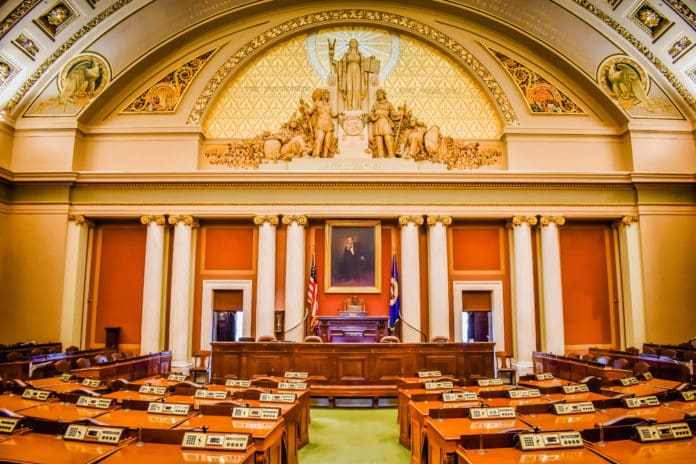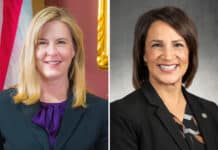(The Center Square) — Minnesota’s legislature will meet year-round if a bill introduced Wednesday by two Democratic legislators becomes law.
Under the proposed bill, authored by Rep. Jamie Long, DFL-Minneapolis, and Sen. Lindsey Port, DFL-Burnsville, Minnesotans would vote in the 2022 general election on whether the state’s constitution should be amended to remove restrictions on when the legislature can meet for regular session.
Rep. Samantha Vang, DFL-Brooklyn Center, joined Long in authoring HF 4840.
Currently, legislators meet in regular session for no more than 120 legislative days and cannot meet after the first Monday following the third Saturday of May.
“The state’s challenges don’t stop in May, and we shouldn’t stop working for the people then either,” Long said in a DFL news release. “We should follow the lead of states like Wisconsin, Michigan, and Ohio by stepping up to meet the complex issues of a 21st century economy.”
Minnesota legislators tend to have other jobs outside the legislature. Port said in the news release that that’s a barrier for those who are not independently wealthy.
“We lose talented legislators every session because they struggle to manage what for all practical purposes is a full-time job with the need for other employment,” she said.
Speaker of the House Rep. Melissa Hortman, DFL-Brooklyn Park, said the current legislative session makes it challenging for legislators to give sufficient attention to state issues and making the legislature work year-round would give Minnesotans more voice in government.
Minnesota would join 10 other states that have full-time legislatures: California, Michigan, New York, Pennsylvania, Alaska, Hawaii, Illinois, Massachusetts, Ohio and Wisconsin.
“In most of these states, there are no restrictions on when legislators can meet, and the regular session is significantly longer in states that still have some restrictions. Serving in the legislature is a full-time job, and lawmakers are compensated accordingly. Most can make a living without taking a second position outside of the legislature,” the DFL said in a news release.
Minority Leader Sen. Melisa López Franzen, DFL-Edina, said the current schedule forces legislators to debate a handful of large omnibus bills instead of dedicating time to individual bills.
State budget forecasts are released in late February, leaving legislators a couple of months to determine how to allocate funding while passing policy legislation.
Majority Leader Sen. Jeremy Miller, R-Winona, told The Center Square in an emailed statement that moving to a full-time legislature is an “absolutely terrible” idea.
“[It] would move us more toward Washington, D.C.-style politics,” he said. “It’s important to maintain the current citizen-legislature to ensure we don’t have a legislature full of career politicians.”
The last two-year budget for the House, Senate, and Legislative Coordinating Commission was about $198 million, Miller’s communications director and press secretary Rachel Aplikowski told The Center Square.
“Going full time would undoubtedly cost more than that with more per diem, more mileage, probably more staff because there would be more bills, etc.,” she said.
Minnesota legislators currently make $48,520 annually. Per diem, representatives make $66 and senators make $86.
The National Conference of State Legislatures lists each state’s 2021 legislative salaries and per diems.
















